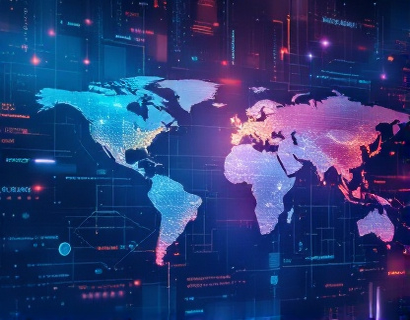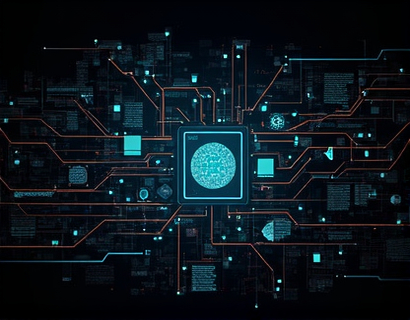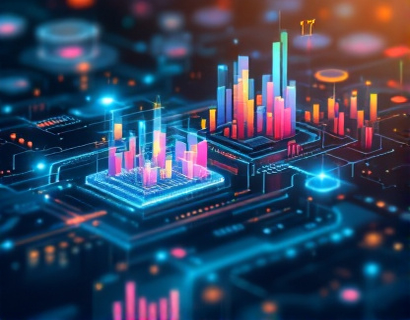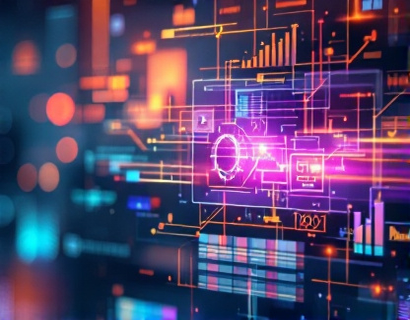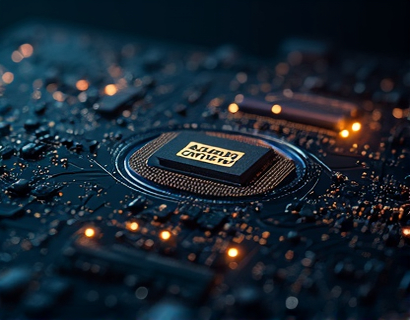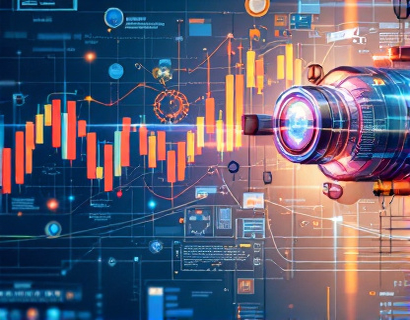Revolutionizing Digital Experiences: Leveraging Crypto and AI for Next-Gen Solutions
The digital landscape is undergoing a profound transformation, driven by the convergence of two revolutionary technologies: cryptocurrency and artificial intelligence (AI). This convergence is not just a trend but a fundamental shift in how we approach digital experiences, offering unprecedented opportunities to enhance user interactions, secure transactions, and create innovative applications. This article delves into the transformative power of merging crypto and AI, exploring how these technologies are redefining the future of technology and providing advanced solutions that connect tech enthusiasts with cutting-edge applications.
The Intersection of Cryptocurrency and AI
Cryptocurrency, since its inception with Bitcoin, has been more than just a digital currency. It represents a decentralized, transparent, and secure way of conducting transactions without intermediaries. AI, on the other hand, is rapidly advancing, enabling machines to learn from data, recognize patterns, and make decisions with minimal human intervention. When these two technologies intersect, the potential for innovation is immense.
The combination of crypto and AI can lead to the creation of decentralized applications (dApps) that leverage AI algorithms to provide smarter, more efficient, and secure services. For instance, AI can enhance the functionality of smart contracts, making them more adaptive and responsive to changing conditions. This synergy can revolutionize various sectors, from finance and healthcare to supply chain management and beyond.
Enhancing User Experiences with AI-Driven Crypto Solutions
One of the most significant impacts of merging crypto and AI is the enhancement of user experiences in digital environments. AI can analyze vast amounts of data to understand user preferences and behaviors, allowing for personalized interactions within crypto ecosystems. For example, AI-powered chatbots can assist users in navigating complex crypto platforms, providing real-time advice and support.
Moreover, AI can improve the security of crypto transactions by detecting and preventing fraudulent activities. Machine learning algorithms can identify unusual patterns and anomalies, alerting users and platforms to potential threats. This not only enhances trust in crypto transactions but also makes the overall experience more seamless and secure.
Decentralized AI Marketplaces
Decentralized AI marketplaces are another exciting application of merging crypto and AI. These platforms allow developers and businesses to buy, sell, and trade AI models and data sets in a transparent and secure manner. AI models can be tokenized, enabling fractional ownership and easier access to high-quality AI resources.
AI models can be trained on decentralized data sets, ensuring privacy and compliance with data protection regulations. This decentralized approach not only democratizes access to AI technology but also fosters innovation by allowing a broader range of participants to contribute and benefit from AI advancements.
Tokenization and Incentivization
Tokenization plays a crucial role in the convergence of crypto and AI. By tokenizing AI services and data, platforms can create new economic models that incentivize participation and contribution. For instance, users who contribute data or compute resources can be rewarded with tokens, which can be used to access other services within the ecosystem.
This tokenization mechanism aligns the interests of different stakeholders, creating a more collaborative and efficient environment. It also opens up new revenue streams for content creators and data providers, making the ecosystem more sustainable and vibrant.
AI-Enhanced Crypto Assets
AI can also be used to create and manage crypto assets that offer more value and utility. For example, AI can analyze market trends and predict price movements, helping investors make more informed decisions. Smart assets can be programmed to adapt to changing market conditions, automatically adjusting their parameters to optimize performance.
Furthermore, AI can enhance the functionality of non-fungible tokens (NFTs) by embedding intelligent behaviors and interactions. AI-powered NFTs can evolve over time, responding to user interactions and environmental changes, thus providing a more dynamic and engaging experience.
Supply Chain Optimization with Crypto and AI
In the realm of supply chain management, the combination of crypto and AI can lead to significant improvements in efficiency and transparency. Blockchain technology ensures that all transactions are recorded immutably, while AI can optimize logistics and inventory management.
AI algorithms can predict demand, optimize routes, and reduce waste, leading to cost savings and faster delivery times. Smart contracts can automate payments and ensure compliance with contractual obligations, reducing the need for intermediaries and speeding up processes. This synergy can transform supply chains into more resilient and responsive systems.
Healthcare Innovations
The healthcare sector stands to benefit immensely from the integration of crypto and AI. Patient data can be securely stored and shared using blockchain, ensuring privacy and compliance with regulations like GDPR. AI can analyze this data to identify patterns, predict disease outbreaks, and personalize treatment plans.
Decentralized health records managed on blockchain can give patients control over their medical data, allowing them to share it with healthcare providers as needed. AI-driven diagnostic tools can assist doctors in making more accurate and timely diagnoses, improving patient outcomes. Additionally, tokenized incentives can encourage data sharing and participation in clinical trials, accelerating medical research.
Financial Inclusion through Crypto and AI
One of the most promising aspects of merging crypto and AI is the potential to drive financial inclusion. Traditional financial systems often exclude large portions of the population, particularly in underserved regions. Crypto and AI can provide accessible and affordable financial services to these communities.
AI-powered financial tools can assess creditworthiness based on alternative data sources, enabling more people to access loans and other financial products. Decentralized finance (DeFi) platforms can offer a range of financial services, from savings accounts to decentralized exchanges, all accessible via a smartphone.
Tokenized identity verification can simplify the onboarding process for financial services, reducing the need for extensive paperwork and bureaucracy. This combination can empower individuals and businesses, fostering economic growth and stability.
Challenges and Considerations
While the potential benefits are substantial, there are also challenges and considerations to address when leveraging crypto and AI. Regulatory frameworks are still evolving, and compliance is crucial to avoid legal issues. Security remains a top concern, as both crypto and AI systems can be vulnerable to attacks and breaches.
Moreover, the ethical implications of AI, such as bias and transparency, must be carefully managed. Ensuring that AI algorithms are fair and unbiased is essential for building trust and acceptance. Education and awareness are also key, as many users and businesses may be unfamiliar with these technologies and their applications.
Conclusion
The convergence of cryptocurrency and artificial intelligence is poised to revolutionize digital experiences, offering innovative solutions that enhance security, efficiency, and user engagement. By leveraging the strengths of both technologies, we can create a more connected, transparent, and inclusive digital world. As these technologies continue to evolve, the possibilities for transformation are endless, making it an exciting time for tech enthusiasts and innovators alike.











